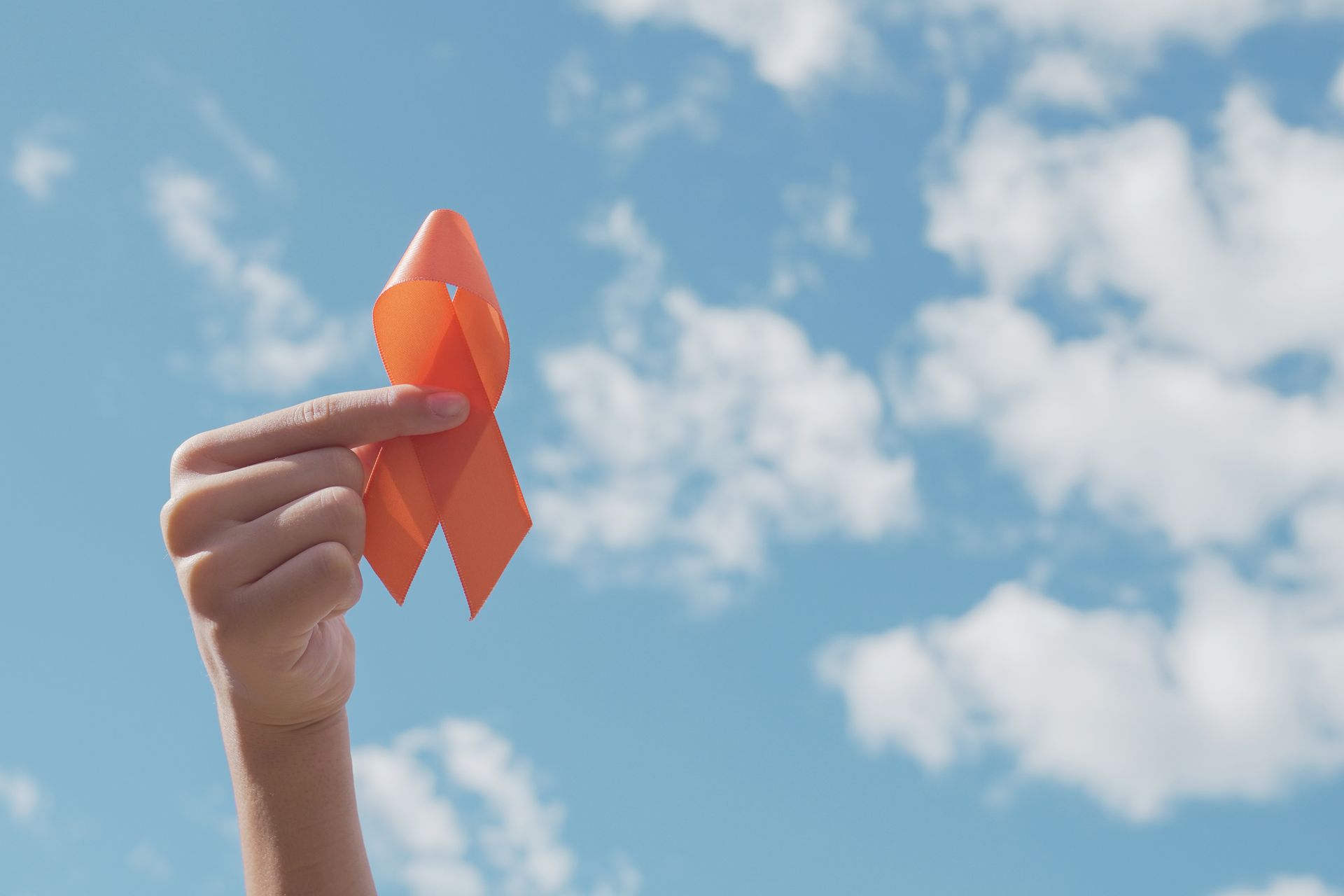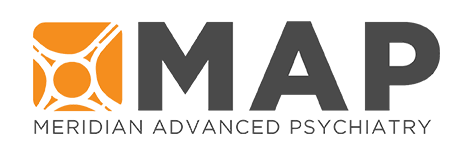The Role of ADHD Medications
Attention Deficit Hyperactivity Disorder (ADHD) is a common neurodevelopmental disorder that affects millions of children and adults worldwide. Characterized by symptoms such as inattention, hyperactivity, and impulsivity, ADHD can significantly impact an individual’s daily life, including their relationships, work, and overall well-being. At Meridian Advanced Psychiatry, we recognize the importance of effective treatment options for managing ADHD symptoms and improving the quality of life for those affected. One such option is medication, which has been shown to be a vital component in managing ADHD symptoms for many individuals.
In this article, we will discuss the role of medication in managing ADHD symptoms, the different types of medications available, the benefits and potential side effects of ADHD medications, and the importance of combining medication with other treatment approaches.
Understanding ADHD and Its Symptoms
ADHD is a neurodevelopmental disorder that affects an individual’s ability to focus, control impulses, and manage hyperactivity. The following are common symptoms of ADHD:1
Inattention:
- Difficulty sustaining attention
- Forgetfulness
- Disorganization
- Difficulty following instructions
Hyperactivity:
- Restlessness
- Fidgeting
- Excessive talking
Impulsivity:
- Interrupting others
- Difficulty waiting their turn
- Acting without considering consequences
The Role of Medication in Managing ADHD Symptoms
Medication is often a crucial component of a comprehensive treatment plan for ADHD. It helps manage symptoms by improving focus, reducing impulsivity, and controlling hyperactivity. The most commonly prescribed medications for ADHD are stimulants, which work by increasing the levels of specific neurotransmitters (dopamine and norepinephrine) in the brain.
Types of ADHD Medications
There are two main types of ADHD medications: stimulants and non-stimulants. The following is a brief overview of each type:2
- Stimulant Medications:
- Methylphenidate (Ritalin, Concerta)
- Amphetamine (Adderall, Vyvanse)
- Non-Stimulant Medications:
- Atomoxetine (Strattera)
- Guanfacine (Intuniv)
- Clonidine (Kapvay)
Benefits and Potential Side Effects of ADHD Medications
ADHD medications can provide numerous benefits, such as improved focus, reduced impulsivity, and better overall functioning. However, they can also have potential side effects, which may include:
- Appetite suppression
- Sleep disturbances
- Headaches
- Increased heart rate or blood pressure
- Irritability or mood swings
It is essential to work closely with a healthcare professional to monitor and manage any side effects and adjust the medication dosage as needed.
Combining Medication with Other Treatment Approaches
While medication can be an effective tool for managing ADHD symptoms, it is important to combine it with other treatment approaches for the best results. These may include:3
- Psychotherapy (cognitive-behavioral therapy, family therapy)
- Behavioral interventions (parent training, classroom management strategies)
- Skills training (time management, organizational skills)
- Lifestyle changes (exercise, healthy diet, sleep hygiene)
At Meridian Advanced Psychiatry, We Can Help!
At Meridian Advanced Psychiatry, our team of experienced mental health professionals understands the complexities of ADHD and its impact on an individual’s life. We offer a comprehensive approach to treatment that includes medication management, therapy, and support for individuals and families affected by ADHD. Our goal is to help patients manage their symptoms, develop healthy coping strategies, and achieve a better quality of life.
If you or a loved one is struggling with ADHD, Contact Us or call us at (208) 515-CARE. Our team is here to help you navigate the challenges of ADHD and find the most effective treatment options.
References
Mayo Clinic. (n.d.). Adult attention-deficit/hyperactivity disorder (ADHD): Diagnosis & treatment. Retrieved from https://www.mayoclinic.org/diseases-conditions/adult-adhd/diagnosis-treatment/drc-20350883
Cleveland Clinic. (n.d.). ADHD medication. Retrieved from https://my.clevelandclinic.org/health/treatments/11766-adhd-medication
CHADD – The National Resource on ADHD. (n.d.). The role of medication. Retrieved from https://chadd.org/for-professionals/the-role-of-medication/

As we reflect on another meaningful Thanksgiving celebration, it’s a perfect moment to pause and recognize the profound impact that gratitude can have on our mental and emotional well-being. Gratitude is more than a polite “thank you”—it is a mindset, a daily practice, and a scientifically supported tool that can transform how we feel, think, and connect with others. In today’s fast-paced world, many people carry heavy emotional loads—stress, anxiety, burnout, depression, or the chronic pressures of work and family life. While gratitude does not erase these challenges, it provides a powerful counterbalance that helps strengthen resilience. When we focus intentionally on what is going right, who is supporting us, or the blessings we sometimes overlook, we train the brain to notice hope, progress, and possibility rather than only stressors. Research consistently shows that gratitude is one of the most effective and accessible ways to improve mental health. Studies from the University of California, Davis found that individuals who regularly practice gratitude experience greater happiness, improved sleep, lower levels of stress, and stronger connection with others (Emmons & McCullough, 2003). Gratitude acts as a natural mood stabilizer by activating the brain regions associated with empathy and emotional regulation. Gratitude also strengthens relationships. When we express appreciation to others, we reinforce trust and connection. When we practice private gratitude (journaling, meditation, prayer, reflection), we cultivate emotional steadiness and clearer perspective. Even brief moments—such as mentally listing three positive things at the end of the day—can shift the entire tone of our mental health journey. A second study, published in Clinical Psychology Review, found that gratitude practices can band promote overall psychological well-being across diverse age groups and populations (Wood et al., 2010). What makes gratitude especially powerful is its accessibility: no cost, no equipment, no appointment needed—just a few intentional minutes each day. As we move forward from Thanksgiving into the holiday season, we invite you to make space for gratitude. Celebrate the small wins. Recognize the people who lift you up. Notice the peace that comes from focusing on what is already good. Gratitude won’t solve every challenge, but it creates room for healing, hope, and emotional renewal —one grateful moment at a time. References :
Emmons, R.A., & McCullough, M.E. (2003). Counting Blessings Versus Burdens: An Experimental Investigation of Gratitude and Subjective Well-Being in Daily Life. Journal of Personality and Social Psychology.
Wood, A.M., Froh, J., & Geraghty, A. (2010). Gratitude and Well-Being: A Review and Theoretical Integration. Clinical Psychology Review.

October is ADHD Awareness Month , a national campaign led by the ADHD Awareness Month Coalition with partners such as CHADD and ADDA. The goal is simple and urgent: replace myths with facts and help more people get timely, evidence-based care. ADHDAwarenessMonth 2025+2ADDA+2 What ADHD is—and isn’t . ADHD is a neurodevelopmental condition that can affect attention, working memory, organization, and impulse control. It often begins in childhood and can persist into adulthood, shaping how we learn, work, and relate to others. Many adults recognize symptoms only later in life—sometimes after a child in the family is evaluated. Authoritative public-health sources (CDC, NIMH) emphasize that ADHD is common and treatable. CDC+1 Why a real evaluation (“testing”) matters . An ADHD assessment is more than a quick checklist. Best practice includes a thorough clinical history across settings (home/school/work), validated rating scales from multiple informants, and careful screening for conditions that can mimic or co-occur with ADHD (anxiety, depression, sleep disorders, learning differences). For children and adolescents, the American Academy of Pediatrics provides detailed guidance on diagnosis and treatment. Adults benefit from a similarly comprehensive approach adapted to work and home demands. Pediatrics Treatment works—and it’s not one-size-fits-all . Evidence-based options include behavior therapy/coaching, skills-based psychotherapy (e.g., CBT for ADHD), school or workplace accommodations, and medications (stimulant and non-stimulant). Care plans are individualized and often combine strategies for the best results. Public-health guidance from the CDC and NIMH underscores that treatment can reduce symptoms and improve functioning across the lifespan. CDC+1 Four practical steps you can take this month: Start the conversation . Ask your primary care clinician or a mental-health professional about an ADHD evaluation; bring real-world examples (missed deadlines, distractibility while driving, school feedback). Pediatrics Explore treatment choices . Discuss behavior therapy, coaching/CBT, and medication options—and how they fit your goals. CDC+1 Set up supports at school/work . Request reasonable accommodations (structured deadlines, written instructions, reduced-distraction testing). National Institute of Mental Health Use reliable resources . The ADHD Awareness Month site, CHADD, and ADDA host toolkits, webinars, and local supports throughout October. ADHDAwarenessMonth 2025+2ChADD+2 Awareness month is a great time to move from “maybe” to action . A thoughtful evaluation and the right mix of tools can change the trajectory at school, at work, and at home. References ADHD Awareness Month Coalition. “ADHD Awareness Month.” (campaign hub with resources and events). ADHDAwarenessMonth 2025 Centers for Disease Control and Prevention (CDC) . “Treatment of ADHD.” (overview of evidence-based treatments for children and adults). CDC American Academy of Pediatrics (AAP) . Clinical Practice Guideline for the Diagnosis, Evaluation, and Treatment of ADHD in Children and Adolescents. (Pediatrics, 2019). Pediatrics National Institute of Mental Health (NIMH) . “ADHD—What You Need to Know.” (symptoms, diagnosis, treatments). National Institute of Mental Health

October marks Domestic Violence Awareness Month , a time to name the problem and connect people to help. Domestic violence (intimate partner violence, or IPV) includes patterns of physical harm, sexual violence, stalking, or psychological aggression. It affects millions and carries serious health consequences—from injuries to depression, PTSD, and chronic disease. The CDC’s national data underscore the scope and impact. CDC Health care teams have a role, too. The U.S. Preventive Services Task Force recommends clinicians screen women of reproductive age (including during pregnancy and postpartum) for IPV and connect people who screen positive to services—an evidence-based step shown to improve safety and well-being. USPSTF If you are concerned about your safety—or are supporting someone who is—consider these actions: Talk to a clinician you trust . You can say, “I’m not sure I’m safe at home.” Your provider can screen confidentially, document injuries, and refer you to advocates and legal resources. (If using a shared phone/portal, ask about private contact methods.) Create a safety plan . Identify safe rooms/exits, pack a small “go bag” (IDs, medications, keys, cash, copies of important documents), and choose a code word with a friend to signal you need help. Use confidential help lines . The 988 Lifeline supports people in emotional crisis. For domestic violence–specific support and local shelters, call 1-800-799-SAFE (7233) or chat at thehotline.org. Protect your digital trail . Use a device your partner can’t access if possible. Clear browser histories, use private browsing, and consider a new email for communications with advocates or clinicians. Know emergency options . If you fear immediate harm, call 911. Ask about protective orders, victim advocacy, and medical forensic exams where applicable. If you’re a friend or colleague : Believe them, avoid blaming questions, offer rides/childcare, and help gather essentials. Safety—and the survivor’s choices—come first. Domestic violence is common, serious, and preventable. Screening and support save lives, and confidential resources are available even if you’re not ready to leave. You are not alone. CDC+1

A new national report from Mental Health America places Idaho 48th overall for mental health, reflecting a combination of high need and limited access to care. The ranking comes from MHA’s annual State of Mental Health in America analysis, which aggregates 17 indicators spanning prevalence, insurance coverage, youth depression, and provider availability. Mental Health America Local coverage confirms Idaho’s position in this year’s release. KBOI Rankings are not destiny—but they do spotlight gaps Idahoans experience every day: long waitlists, workforce shortages, and rural access hurdles. MHA’s framework helps explain why states can fall behind even when communities work hard: it measures both how many people are struggling and how easy it is to get timely, affordable care. Mental Health America If you or someone you love needs support, here are practical steps you can take today: Start with one conversation . Talk to your primary care clinician about mood, sleep, anxiety, or substance use. Ask for a screening (PHQ-9 for depression, GAD-7 for anxiety) and referrals that fit your location and insurance. Use fast, free crisis support . Call or text 988 to reach the Suicide & Crisis Lifeline. They can de-escalate, connect you to local resources, and advise loved ones on how to help. Ask for access options . Many practices can shorten waits with telehealth, group therapy, collaborative care (therapy + meds coordinated with your PCP), or interim check-ins with nurses/behavioral health coaches. Clarify coverage . Contact your health plan for in-network therapists and psychiatrists; ask about telehealth, out-of-network benefits, and any cost-sharing. If you’re uninsured or underinsured, request sliding-scale or charity rates from clinics. Lean on supports you trust . Tell a friend or family member, or connect with community groups and faith communities. Bring someone to appointments if that feels helpful. Keep a simple plan . Write down your top 3 coping tools (walk, breathe, call a friend), your provider’s number, and 988 . Put it in your phone notes. Idaho’s ranking is a call to action—for policymakers and health systems, yes, but also for each of us to normalize care-seeking and help one another navigate to support. When people get the right care at the right time, outcomes improve—and so do communities.

Every September, communities across the country come together for National Suicide Prevention Awareness Month. This month is dedicated to raising awareness, reducing stigma, and encouraging open conversations about mental health and suicide prevention. Why This Month Matters Suicide is a leading cause of death in the United States. In 2022 alone, more than 49,000 Americans died by suicide ( CDC ). Suicide can affect anyone—people of all ages, backgrounds, and experiences. Many who die by suicide struggle with depression, anxiety, or other mental health conditions, often without adequate support or treatment (NIMH). By learning the warning signs, reaching out to loved ones, and connecting people to help, we can save lives. How You Can Help Know the warning signs: Talking about wanting to die, withdrawing from friends, changes in mood or behavior, or increased use of alcohol or drugs are all potential warning signs. Check in with loved ones: If you’re worried about someone, ask how they’re feeling and listen without judgment. Encourage professional support: Mental health treatment works. Help friends and family find a therapist, doctor, or support group. Share crisis resources: Let people know they can call, text, or chat 988 to reach the Suicide and Crisis Lifeline anytime, 24/7 ( 988lifeline.org ). You’re Not Alone If you or someone you care about is struggling, there is help and hope. Talking about suicidal thoughts does not make things worse—listening and showing support can be lifesaving. Resources 988 Suicide and Crisis Lifeline — call, text, or chat 988 anytime SAMHSA Suicide Prevention Resources — Visit here CDC Suicide Prevention Facts — Visit here Our Commitment We believe that mental health care is health care. This September—and every month—we’re committed to supporting individuals, families, and communities by providing compassionate, evidence-based care.

As the back-to-school season approaches, many mothers brace themselves—not just the kids. Beneath the excitement of new backpacks and first-day photos, a quieter emotional struggle often unfolds. Moms can find themselves wrestling with waves of anxiety and even depression as routines shift and children return to school. The pull of separation anxiety isn't just a childhood phenomenon. Research shows that mothers with underlying anxiety or depression can find life transitions—like the start of school—particularly triggering. Maternal mental health is closely linked to parenting stress, and anxiety can heighten concerns about safety, performance, and social adjustment (The Independent, 2021). Moreover, maternal depression and anxiety have been shown to impact mother–child interactions and are associated with increased emotional and behavioral difficulties in children (BMC Public Health, 2024). These challenges are not limited to mothers of young children. While postpartum depression affects roughly one in seven new mothers, with nearly half remaining undiagnosed, its effects can persist well beyond infancy (BMC Public Health, 2024). As children grow, milestones like starting school can resurface feelings of loss, inadequacy, or uncertainty. The start of a school year also disrupts household rhythms. Homes that once thrived on all-day togetherness suddenly fall silent, and moms may find themselves second-guessing: Is my child safe? Am I doing enough? These thoughts can spiral into persistent worry or low mood, especially for those already vulnerable to anxiety or depression. External pressures—work schedules, social comparisons on social media, and guilt over “letting go”—can compound these emotions. Even routine school events like drop-off or parent–teacher conferences can carry unexpected emotional weight, sometimes triggering tears or feelings of isolation. What Can Help? Normalize the feelings : Recognizing that many mothers experience similar emotions can help reduce isolation. Reach out : Schedule check-ins with other parents. Peer support can help regulate stress. Create rituals : Daily “share your day” traditions strengthen connection and reduce anxiety. Seek professional help when needed : Persistent sadness, anxiety, or functional impairment are valid reasons to speak with a healthcare provider. Sending a child back to school may be a rite of passage for kids, but for mothers, it can be laden with emotions. Acknowledging those feelings—and treating them with care—can make all the difference in easing the transition from summer freedom to the structure of the school year. References : The Independent. (2021). Parents’ anxiety about children starting school is real – and it’s on the rise. Retrieved from https://www.the-independent.com/life-style/health-and-families/anxiety-children-parents-school-skip-health-b2807905.html BMC Public Health. (2024). Prevalence and risk factors of maternal depression and anxiety. https://bmcpublichealth.biomedcentral.com/articles/10.1186/s12889-024-18502-0

As the back-to-school season approaches, many parents are focused on school supplies, schedules, and routines. But for children and teens struggling with attention, focus, or behavior regulation, it’s also the ideal time to consider evaluation for Attention-Deficit Disorder and Attention Deficit Hyperactivity Disorder (ADD / ADHD). ADD / ADHD affects approximately 9.8% of children and adolescents in the U.S., with symptoms often becoming more noticeable or problematic during transitions—such as the return to school after summer break (Centers for Disease Control and Prevention, 2023). These symptoms may include difficulty focusing, excessive talking or interrupting, trouble following instructions, and poor time management. Early identification through formal ADD / ADHD testing can make a significant difference in a child’s academic and social development. Comprehensive testing typically includes clinical interviews, behavior rating scales completed by parents and teachers, and—when appropriate—computerized attention assessments or cognitive testing. When a diagnosis is confirmed, evidence-based treatment can begin. Most treatment plans include a combination of behavioral therapy, academic accommodations (such as 504 plans or IEPs), parent coaching, and sometimes medication. According to the American Academy of Pediatrics, treatment that includes both behavior therapy and, when indicated, stimulant or non-stimulant medications is the most effective approach for school-aged children (AAP, 2019). Starting the evaluation and treatment process before school ramps up allows families, educators, and providers to collaborate on support strategies early, and preventing academic frustration and behavioral conflicts from compounding over time. It also helps ensure that any necessary accommodations are in place before performance challenges lead to lower grades or reduced self-esteem. If you’ve noticed signs of inattention, impulsivity, or hyperactivity in your child, don’t wait. Testing and treatment during the early weeks of the school year can provide clarity, structure, and a path forward for your child to thrive—both in and out of the classroom. References : 1)Centers for Disease Control and Prevention. (2023). Data and Statistics About ADHD. Retrieved from: https://www.cdc.gov/ncbddd/adhd/data.html 2)American Academy of Pediatrics. (2019). Clinical Practice Guideline for the Diagnosis, Evaluation, and Treatment of ADHD in Children and Adolescents. Pediatrics, 144(4), e20192528. https://doi.org/10.1542/peds.2019-2528

As the days grow longer and the sun begins to warm the earth, many people experience a noticeable lift in mood and energy. Springs arrival can have a powerful impact on mental health especially for those managing conditions like depression, anxiety, and seasonal affective disorder (SAD). Sunlight and Serotonin One of the biggest mental health benefits of spring is increased exposure to natural sunlight. Sunlight boosts the brains production of serotonin, a neurotransmitter that contributes to feelings of well-being and happiness. More sunlight often means improved mood, better sleep, and more energy factors that can positively influence those living with depression or anxiety. A Natural Antidote to Seasonal Depression Seasonal Affective Disorder is a type of depression linked to the changing seasons, often worsening in fall and winter due to lower light levels. When spring arrives, the increased daylight can relieve SAD symptoms significantly. According to the American Psychiatric Association, many people with SAD begin to feel better in the spring without any change in their treatment plan thanks largely to the suns return. Motivation and Activity Levels Warmer temperatures and sunnier skies encourage people to get outside, engage in physical activity, and reconnect with nature. Regular movement, especially outdoors, is strongly linked to reduced symptoms of depression and anxiety. Activities like walking, gardening, or simply spending time at the park can have lasting mental health benefits. Caution: Spring Isn't a Cure-All It's important to note that not everyone feels better in the spring. For some, spring can bring increased anxiety or pressure to feel better when they are still struggling. Additionally, those with bipolar disorder may be at higher risk for mood shifts as seasons change, and increased light exposure can, in some cases, trigger manic episodes. As always, mental health should be approached with a personalized and professional care plan. Final Thoughts Spring can be a season of renewal not just for nature, but for mental health as well. If you've been feeling low through the winter months, now is a great time to reconnect with your provider, consider adjusting your routine, and take advantage of the seasons natural benefits. And if symptoms persist, don't hesitate to reach out mental health care is available year-round.

Daylight savings time (DST) is a widely practiced time adjustment aimed at maximizing daylight hours. However, the biannual shift can have significant implications for mental health, particularly for individuals receiving mental health care. The disruption to circadian rhythms, sleep patterns, and overall well-being necessitates that mental health professionals and patients alike prepare for the potential psychological effects. Circadian Rhythms and Sleep Disruptions One of the most immediate effects of DST is its disruption to circadian rhythms the internal clock that regulates sleep-wake cycles. The sudden shift, even if only by an hour, can lead to sleep deprivation, increased fatigue, and mood instability. Research has shown that sleep disturbances are directly linked to higher rates of anxiety, depression, and even suicidal ideation (Harrison, 2013). Mental health care providers often see an uptick in symptoms among individuals with pre-existing conditions following the transition. Seasonal Affective Disorder (SAD) and Mood Changes The fall transition into standard time results in shorter daylight hours, exacerbating symptoms of Seasonal Affective Disorder (SAD), a type of depression that occurs cyclically with seasonal changes. The abrupt reduction in natural light exposure can lead to increased lethargy, decreased motivation, and mood imbalances. A study by Wehr et al. (2001) found that individuals affected by SAD are particularly vulnerable to the negative effects of DST. For patients prone to seasonal depression, mental health practitioners often recommend light therapy, adjusted medication schedules, and structured daily routines to mitigate these effects. Impacts on Mental Health Treatment Mental health care providers may also notice changes in patient engagement and treatment effectiveness during the DST transition. Sleep disruptions can decrease cognitive function, making it harder for patients to engage in therapy, retain information, and adhere to treatment plans. Additionally, the loss of daylight hours in the evening can reduce opportunities for outdoor activities, social interactions, and exercise factors crucial for maintaining mental well-being. Strategies for Mitigation To counteract the negative effects of DST, mental health professionals suggest several strategies: Gradually adjusting sleep schedules a few days before the time change Prioritizing natural light exposure during daylight hours Maintaining consistent routines to support emotional stability Encouraging patients to track their mood and symptoms for early intervention As research continues to highlight the mental health impacts of DST, mental health professionals must take proactive steps to support their patients through these transitions. References Harrison, Y. (2013). 'The impact of sleep loss on cognitive performance and mood.' Sleep Medicine Clinics, 8(4), 517-527. Wehr, T. A., Sack, D. A., & Rosenthal, N. E. (2001). 'Seasonality and affective disorders.' Psychiatric Clinics of North America, 24(2), 275-292.


